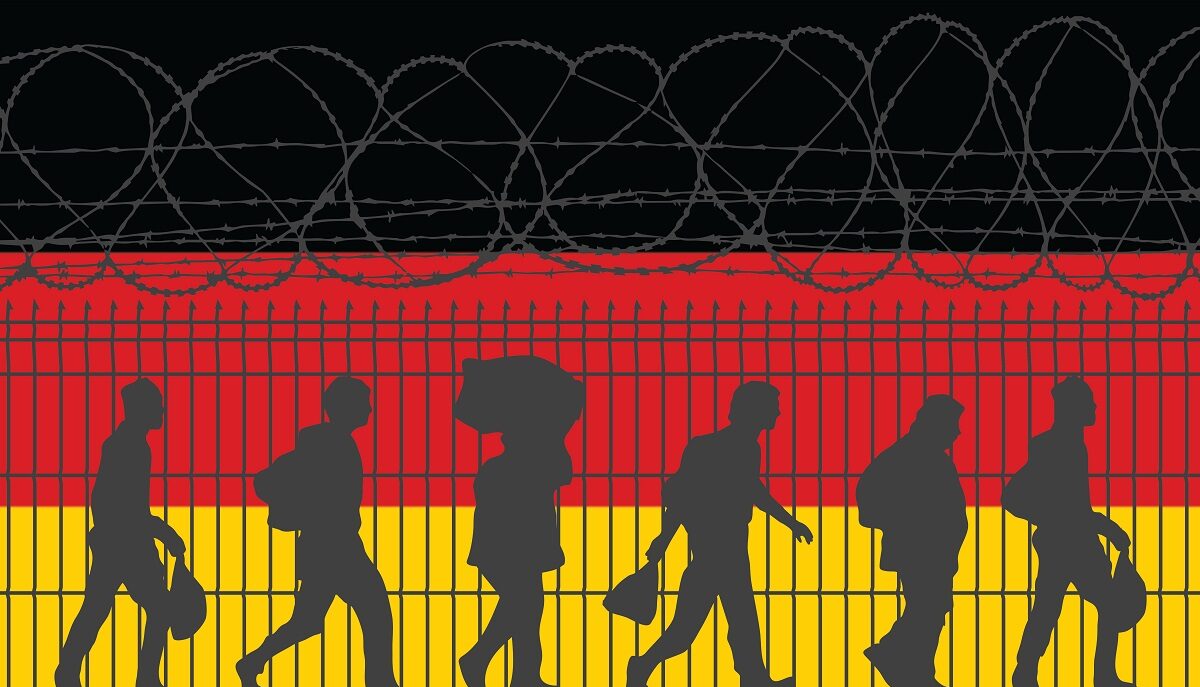“Media, freedom of assembly, freedom of expression were restricted, those who took part in a peaceful protest were beaten…”
Amnesty International released its annual report on human rights across the globe.
According to the report, last year, the freedoms of expression, free assembly, and association were again severely restricted in Azerbaijan, with authorities carrying out illegal arrests of civil society activists, politically motivated trials, dispersed peaceful protests, and creating obstacles to the work of independent organizations and media institutions.
Women continued to face discrimination and there has been no serious progress in the investigation of war crimes committed in the Nagorno-Karabakh conflict.
“Azerbaijan’s role in energy supply and transit has increased”
It is reported that although international humanitarian law violations exist in Azerbaijan, the country’s role in energy supply and transit has increased.
After the full-scale intervention in Ukraine and as a result of Western sanctions, Russia’s influence in the region has decreased. After that, Azerbaijan began to conduct a more self-confident economic and military policy, but the security situation along the Azerbaijan-Armenia border remains fragile.

The organization notes that during the tension that occurred between September 12 and 14, two civilians were killed as a result of Azerbaijan’s shelling of the Syunik, Gegarkunik, and Vayots Dzor areas on the territory of Armenia.
“The corridor of Lachin is blocked”
In October, Azerbaijan and Armenia agreed to a short-term monitoring mission of the European Union along the border:
However, since December 12, the only road connecting Nagorno-Karabakh with Armenia – the Lachin Corridor – has been blocked. Azerbaijanis who protested here said that they are against the illegal exploitation of mines. As a result, Russian peacekeepers set up a barricade on the road to prevent the escalation of tensions. The supply of necessary goods and services to the ethnic Armenian residents of Nagorno-Karabakh was disrupted, and hundreds of people were forced to lose their ability to move.

The government of Azerbaijan has always stated in its statements that it does not prevent the transfer of humanitarian and food cargo to the region.
“There is no progress in the investigation of war crimes”
Amnesty International notes that the General Prosecutor’s Office released information on international humanitarian law violations on October 2.
The organization mentioned an investigation into a video that was released shortly before and showed that a group of people in the military uniform of the Azerbaijani army rounded up and shot at least six Armenian soldiers.

“The investigation continued towards the end of the year without any progress being reported in identifying the persons responsible. In addition, there has been no progress in the investigation of war crimes and other violations committed during and immediately after the 2020 Azerbaijan-Armenia conflict, or in identifying and prosecuting those responsible. According to the information announced by the International Committee of the Red Cross in August, there is still no information about the fate of more than 300 Armenians missing in the territory of Azerbaijan.
“As a result of the explosion of mines, 45 people were killed and 221 people were injured”
The report notes that the mines that Azerbaijan returned in 2020 and claimed to have been placed by the Armenian forces in territories recognized by the international community caused the death and injury of people:

The Azerbaijani government also continued to claim that the mine maps provided by Armenia were not reliable. Authorities said in October that 45 people were killed and 221 people in Azerbaijan were injured as a result of the explosion of mines after the 2020 conflict
“Media organizations reporting on Azerbaijan from abroad were targeted”
The organization notes that the freedom of expression in Azerbaijan is also remembered by the media, the blocking of websites that publish a different position, and the unjustified punishment and trial of critical social media users.
After essentially silencing the majority of the independent media in the country, the authorities targeted foreign news agencies about Azerbaijan.
On February 8, the new media law, which requires the owners of media organizations serving the Azerbaijani audience to live in the country, thus increasing their vulnerability to censorship and persecution, was signed by the president and entered into force.
“State control over the media has increased”
The new law increased the state’s control over the Azerbaijani media by requiring all journalists to be officially registered and to report information “objectively”, but without clearly explaining this requirement of the law:

” The authorities continued to threaten civil society activists and independent media with unjustified arrests and other harassment. In September, Azerbaijani human rights organizations reported that 99 people were in prison on politically motivated charges. Female journalists seem to be particularly targeted. On February 15, two journalists – Fatima Movlamli and Sevinj Sadigova, were beaten, insulted, and detained by the police while reporting on the action held by the mothers of fallen Azerbaijani soldiers. On May 8, Aytan Mammadova was attacked with a knife by an unknown person in the elevator and received minor injuries. The aggressor’s threats indicated that the attack was related to his journalistic activities”.
Critics were arrested and beaten
The report further states that former prisoner of conscience and well-known activist Bakhtiyar Hajiyev was abducted and beaten by masked men who warned him not to criticize the interior minister on April 23.
On December 9, following a personal dispute, a court in Baku sentenced him to 50 days in prison on charges of politically motivated hooliganism and contempt of court.
Activists and individuals with differing views on the Azerbaijan-Armenia conflict have allegedly been targeted by a smear campaign organized by government-affiliated social media accounts on the Internet. On September 20, the chairman of the “Democracy 1918” Movement, Ahmet Mammadli, was arrested for 30 days for criticizing President Ilham Aliyev after the clashes between Azerbaijan and Armenia. In November, two other activists of the Movement were arrested for 30 days for allegedly disobeying the police, the international organization noted.

The organization also mentioned the arrest of Elchin Sadigov and Avaz Zeynalli:
On September 11, the editor-in-chief of the independent news agency “Khural” Avaz Zeynalli was detained on politically motivated charges of accepting bribes, and lawyer Elchin Sadigov, who is known for representing opposition figures, and assisting in accepting bribes. On September 20, Elchin Sadigov was released to house arrest by the court, while Avaz Zeynalli is in prison under pretrial detention.
Deportees from Germany were arrested
It was later reported that at least six activists, government critics who were deported to Azerbaijan after their asylum applications were rejected in Germany, were arrested on what appeared to be trumped-up drug charges.
” The right to freedom of association and assembly remains limited. Excessive limitations both in law and in practice continue to hinder the work of human rights defenders and NGOs ,” the organization believes.

Amnesty International states that the authorities in Azerbaijan unjustly limit the right to freedom of peaceful assembly.
Actions were destroyed
Between May and November, police broke up peaceful anti-government protests in Baku at least three times. Peaceful demonstrators were beaten and illegally detained:
Most of them were released after a short time without facing official charges.

Discrimination against women
As for the rights of women and girls, the organization reports that on July 4, the Convention on the Elimination of All Forms of Discrimination Against Women (CEDAW) Committee expressed concern about the limited access of displaced women and girls to education, work, health care, and housing.
The committee called on Azerbaijan to cancel the restrictions in the Labor Code that prohibit women from working in 204 professions.



